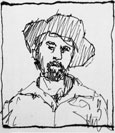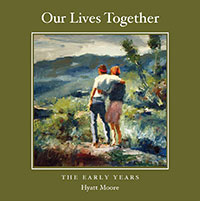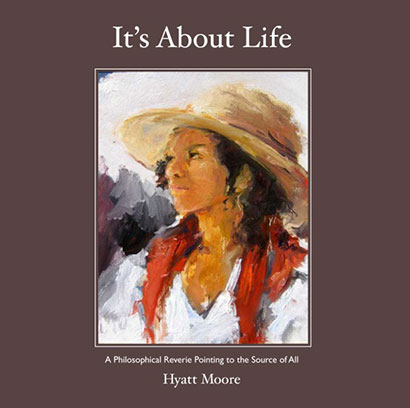I’ve read almost nothing of Walt Whitman’s poetry. It was controversial in his day and he meant it to be. He was picking up on Ralph Waldo Emerson’s challenge that somebody should be writing some new sort of poetry that would be uniquely American. In any case, he wrote, and wrote, and wrote. Basically self-educated, he read a lot, and then wrote whatever came to him, from his own perspective and his own unversed free style. He’s mainly known for his Leaves of Grass, a compilation of poems he kept adding to throughout his life.
That’s what intrigues. It isn’t one long poem, though that notion intrigues too, but rather a continual adding to. It’s an ever-lengthening life message. I may have it wrong. Some Whitman scholar may want to straighten me out on my exposition, but that’s how I like to think of it. And I think Walt would allow me my personal perception since personal perception was what he was all about.
The title is telling, “grass” then being the pejorative among publishers for literature considered light weight and not worthy of much. Maybe mowing. Leaves, of course, could be the pages they were printed on, or blades on the lawn. But he took his thoughts, and maybe all thoughts, quite seriously. One of his lines tells it: “I believe a leaf of grass is no less than the journey-work of the stars.”
And there’s room for infinitely more, both grass and stars.
I warm to the notion of the life-long poem. There’s room for it . . . just as much as there is room in the world for every inhabitant. Whether it’s free verse or measured, it’s the ever-developing message of a life, artfully lived and purposely expressed that makes the poem. That’s not to mention of the plethora of thoughts. Some write it down, most just act it out; either way, it’s poetry . . . or can be.
Whitman said it: “And your very flesh shall be a great poem.”
Like with grass and stars, there’s always room for another poem. Including one that’s life long.
It should make for good reading.
Write well.
Next: One of Whitman’s lines that’s useful for all, coming Sunday.
PS Haven’t subscribed? You can do so with a quick click in the right column and never miss.
And feel free to share with a friend.


 Our Lives Together
Our Lives Together Its About Life
Its About Life
9:46 am
Having read a bit of Whitman and Emerson, I do know that they both voiced a plea for unity for America, at a time when many factors were threatening to tear the nation apart. Up until the third edition of Leaves (called the author’s edition), his name never appeared on the title page, perhaps to identify his voice with any or every American. However, I do remember a full-body portrait of Whitman opposite the title page, one with a riveting stare, that implied his poetry was not to be taken lightly! His statements and views were countercultural, and Whitman is to be admired for speaking straightforth the thoughts he embraced. The life-poem idea has its place here, for each edition mirrors how both his maturity and convictions developed and changed as he got on in years. Would not the book of Ecclesiastes make for an interesting compare/contrast?
6:21 am
Hyatt, even though I am not and have not been a regular part of your life there is some wild connection (a God thing). Whether it be me alone or two sided matters not. I connect with you and what you have to say more than sometimes I can really believe. “Every good and perfect gift comes down from the Father of Lights.” You are certainly a gift to me from our Father of Lights. Thank you for being who you are and REAL at that! And most importantly thank you Father for a man such as Hyatt.
Brian, Masaka, Uganda
9:52 pm
Hyatt, these thoughts in particular remind me of the many full length portraits you’ve done of people in the remote places of the world – just because they are people God created and they are important to Him. This is good encouragement for us to have the courage to express the beauty and the message that God has put within us, since the Creator of life is so…creative!